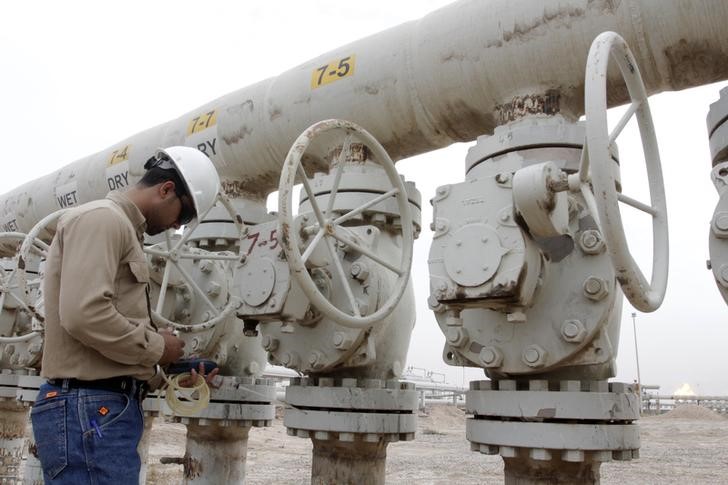By Peter Nurse
Investing.com -- Oil prices soared Monday, bouncing after a torrid quarter on expectations that OPEC+ will reduce output considerably to provide support to a market hit by demand concerns on the back of slowing global growth.
By 09:00 ET (13:00 GMT), U.S. crude futures traded 4.8% higher at $83.31 a barrel, while the Brent contract rose 4.2% to $88.72.
The Organization of the Petroleum Exporting Countries and its allies, a group known as OPEC+, is considering an output cut of more than one million barrels per day ahead of Wednesday's meeting, Reuters reported Monday, citing sources.
If agreed at the group’s first in person meeting of the year, this would be the largest reduction since the pandemic, and would follow on from the cut of 100,000 barrels per day last month.
The bloc has been unnerved by the sharp drop in prices during the last quarter, which left U.S. crude futures down 23% and Brent down 25% from their levels at the end of June. Higher U.S. interest rates, a more expensive dollar and the accompanying prospect of a worldwide economic slowdown have all weighed on prices in recent weeks.
“This would be the biggest output cut seen from the group since the peak of Covid,” said analysts at ING, in a note. “However, if the group were to announce a reduction of around 1MMbbls/d, it is important to remember that the group is already producing well below their production targets and so the actual cut would likely be much smaller.”
Also helping the crude market is the recent weakness of the dollar, with the dollar index having fallen for four consecutive days after last week touching its highest level in two decades. Oil, like most commodities, is denominated in dollars, and thus weakness makes it cheaper for foreign buyers.
Away from the crude market, the gas sector faces "unprecedented" uncertainty this winter and into 2023 as dwindling levels of key Russian supplies drive up prices and disrupt trade flows, according to a new report from the International Energy Agency, released earlier Monday.
"The outlook for gas markets remains clouded, not least because of Russia's reckless and unpredictable conduct, which has shattered its reputation as a reliable supplier," said Keisuke Sadamori, the IEA's director of energy markets and security.
Russian energy giant Gazprom added to the uncertainty by suspending its gas supplies to Italy over the weekend, saying it didn’t receive the authorization for the pipeline flows via Austria.
